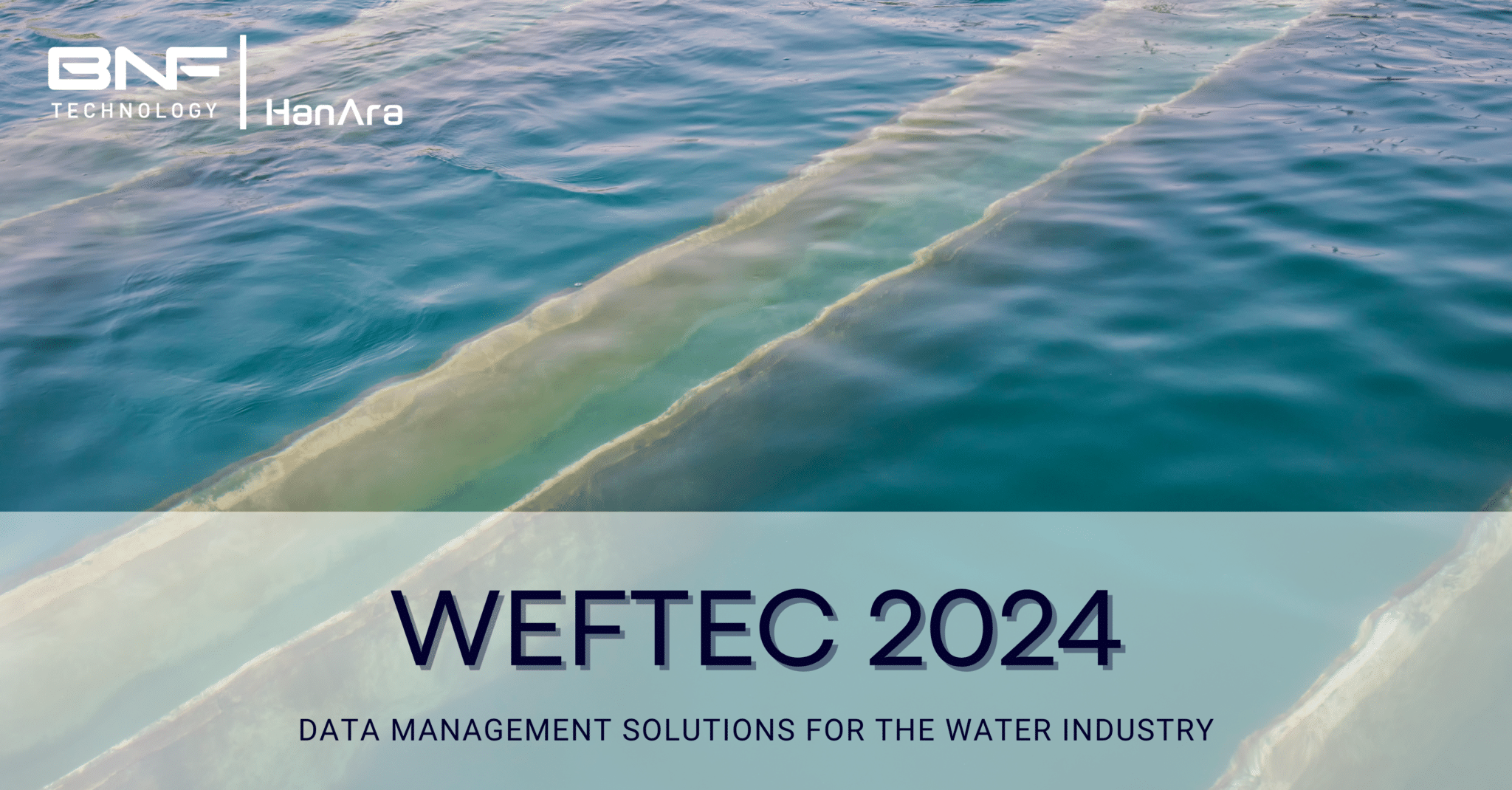While over 20,000 water and wastewater industry experts gathered at WEFTEC 2024 a couple of weeks ago, one message became crystal clear: the future of water management requires continued collaboration between all stakeholders, from local governments to treatment plants and from front-line operators to technology providers. With increasing water stress, our industry faces a complex challenge – managing water scarcity and flooding while meeting growing demands with constrained resources.
Digitalization: Unveiling the Unknown
Water stress has emerged as one of the most pressing challenges of our time. It is not just about having too little water – it is about managing the extremes. Communities worldwide grapple with periods of severe drought followed by devastating floods, all while water treatment facilities face increasing pressure to do more with less. Despite rising water demand, many facilities operate under tight budget constraints. This forces them to seek innovative solutions to maintain and improve their operations.
One of the promising paths forward is the strategic implementation of digital solutions that help organizations and industry experts optimize the resources and time available. At WEFTEC, industry leaders repeatedly emphasized how digitalization can help uncover unknowns – those hidden inefficiencies and opportunities that often go undetected in operations. Organizations must deliver the right information to the right people at the right time to make these unknowns known.
The Human Factor: The Cornerstone of Industry Success
Though digitalization requires the use of advanced technology, people remain the industry’s most valuable asset and critical to the success (or failure) of digitalization. When considering the human factor, the water sector (like many sectors) faces three critical workforce challenges:
- Retaining top talent in a competitive job market
- Preserving and transferring knowledge from experienced professionals
- Attracting new talent to the industry
Empowering and Retaining Top Talent
To retain exceptional professionals, organizations must create an environment that promotes growth and satisfaction. This includes:
- Data-Informed Decision-Making: Equipping team members with advanced tools and analytics enables them to detect patterns and anticipate issues before they become problems. When operators and engineers can work proactively rather than reactively, there are fewer surprises that typically result in increased stress. And by reducing on-the-job stress, job satisfaction typically increases.
- Professional Development: Creating opportunities for continuous learning and growth through exposure to innovative technologies and methodologies keeps work engaging and meaningful. Conferences like WEFTEC are a wonderful opportunity to learn and grow, but don’t let the learning stop there. Make sure to allow members opportunities to apply new learnings (like new technology) to operations.
- Collaborative Innovation: Fostering an environment where expertise from different domains can combine effectively. Integrating operational experience with technological solutions creates powerful synergies that benefit everyone involved.
Preserving Institutional Knowledge
The industry faces a significant challenge as experienced professionals approach retirement. To address this, organizations should focus on:
- Breaking Down Silos: Create a culture of sharing by starting with the basics – giving everyone access to the same information through unified data management solutions. But access alone isn’t enough. Organizations should actively encourage and create opportunities for information sharing and collaborative problem-solving. When people work in silos with siloed information, it creates a siloed culture that is difficult to break down.
- Strategic Documentation: Implement systematic approaches to capture and preserve operational knowledge across your organization. This goes beyond traditional documentation – consider how your experts’ knowledge can enhance artificial intelligence and machine learning solutions. Remember the “garbage in, garbage out” principle, when you train AI systems with high-quality expertise from your team you will get better results that reflect your operational best practices.
- Structured Knowledge Transfer: Design comprehensive programs that facilitate knowledge transfer in both directions – bringing new team members up to speed and capturing insights from departing experts. These programs should cover both operational processes and technological systems. Do not overlook the value of your solution providers in this process – they often have training resources and best practices that can support your knowledge transfer efforts.
Attracting New Talent
The water industry offers unique opportunities that can appeal to the next generation of professionals:
- Meaningful Impact: Want to work on public goods, use cutting-edge technology, and get your hands dirty? Water and wastewater treatment offers it all. This industry provides a rare opportunity to improve public health and environmental sustainability while working with advanced technology solutions. Emphasize to potential talent how they can make a real, tangible difference in their communities from day one.
- Technology Integration: The water industry is not just about pipes and pumps anymore. We are seeing machine learning and artificial intelligence transform how we manage water and wastewater systems. New talent can help implement these solutions and shape the industry’s future. Allow them the opportunity to influence your site’s technology roadmap and help solution providers develop their future products and features.
- Career Diversity: Looking for a dynamic career? Few industries offer the unique combination of hands-on operational experience and advanced technical skills that water and wastewater provide. Team members can develop expertise across multiple domains – from process engineering to data analytics, and environmental science to automated control systems. This diversity creates numerous paths for career growth and professional development.
Looking Ahead
As we reflect on WEFTEC 2024, the future of water and wastewater management lies at the intersection of human expertise and technological innovation. While digital solutions and AI will play an increasingly significant role in addressing water stress and operational challenges, success ultimately depends on the people who operate, maintain, and improve these systems.
The path forward requires a balanced approach: embracing technological advancement while investing in our workforce. By creating environments where expertise is valued, knowledge is shared, and innovation is encouraged, we can build more resilient and sustainable water management systems for future generations.
The challenges we face in water management are significant, but the insights shared at WEFTEC 2024 show that our industry has the technical capability and human capital to meet them head-on. The key lies in bringing these elements together effectively to create synergies that benefit our workforce and the communities we serve.
Reach out to our solution experts to learn more and share your experience in the industry!

